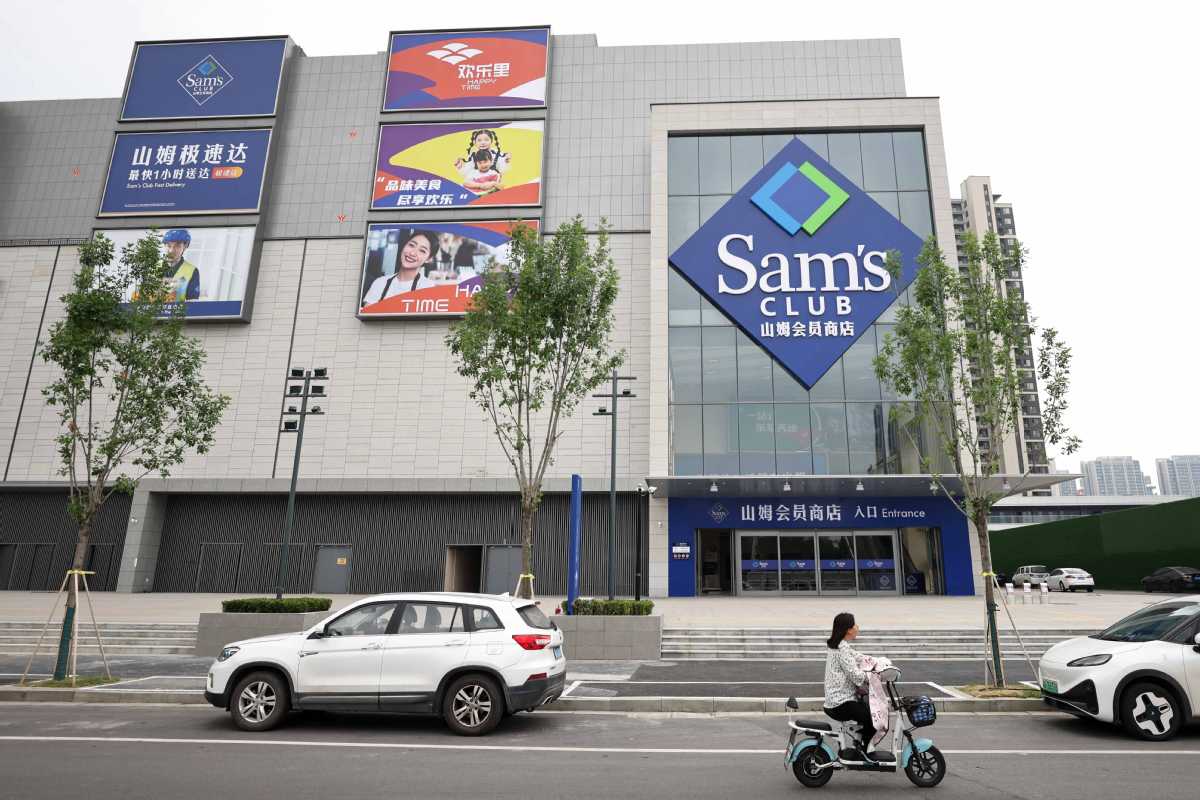
A moped rider rides past a Sam’s Club branch in Nanjing, Jiangsu province. YANG BO/CHINA NEWS SERVICE
US retailer Walmart has sold its entire $3.7 billion stake in Chinese e-commerce platform JD and is shifting its focus to its business in China. According to industry experts, the move will not affect the strategic partnership between the two companies, which intend to maintain close business cooperation in the future.
They pointed out that the decision to sell shares would enable Walmart to raise capital and focus on its core business in China, while both sides could explore new cooperation models in areas such as supply chain management, logistics and delivery, and digital services.
Walmart had no stake in JD as of Aug. 20, the Chinese company said in a filing to the Hong Kong stock exchange last week. JD also said it was confident about future cooperation between the two sides.
Walmart said in a statement that JD has been a valued partner over the past eight years and that the U.S. retailer is interested in continuing its business relationship with the Chinese e-commerce giant.
“This decision allows us to focus on our strong China businesses for Walmart China and Sam’s Club and deploy capital to other priorities,” Walmart said.
The partnership between the two companies began in 2016 when Walmart sold its Chinese online grocery store Yihaodian to JD in exchange for a 5 percent stake. This was part of a broader initiative to gain a foothold in China’s fast-growing online shopping market. The two companies also conducted a series of retail and e-commerce collaborations that included order fulfillment and delivery.
“Walmart’s decision to sell its stake in JD appears to be based on its strategic reorientation, optimization of its assets and its assessment of the market environment. The move signals that Walmart is reassessing its asset portfolio to better adapt to market changes and its own growth needs,” said Jiang Han, senior researcher at Beijing-based think tank Pangoal Institution.
Jiang said the cooperation between JD and Walmart may have entered a new phase as it is no longer limited to the equity level but is shifting toward a more flexible and diversified business cooperation model.
The U.S. retailer also said it will maintain its business relationship with JD, which means JD still occupies an important position in Walmart’s business structure in China, Jiang said, adding that the move to sell the JD shares will not have a significant impact on the existing relationship between the two companies and may open up new cooperation opportunities for them in the long run.
Shen Meng, director of Beijing-based boutique investment bank Chanson & Co, said Walmart wanted to seize the opportunities brought by the rapid growth of China’s e-commerce market and initially invested in JD. He added that the emergence of new platforms has had a major impact on traditional e-commerce companies in recent years, while Walmart’s decision to sell its stake in JD suggests the company is adjusting its China strategy.
Walmart is increasingly focusing on building its own China business. The company reported a 17.7 percent year-on-year increase in sales to $4.6 billion in the second quarter, driven by strong growth in its Sam’s Club chain and digital offerings.
Membership revenue from the Sam’s Club business in China increased 26 percent year-over-year as membership numbers continued to grow. The company currently operates 48 Sam’s Club stores in China.

